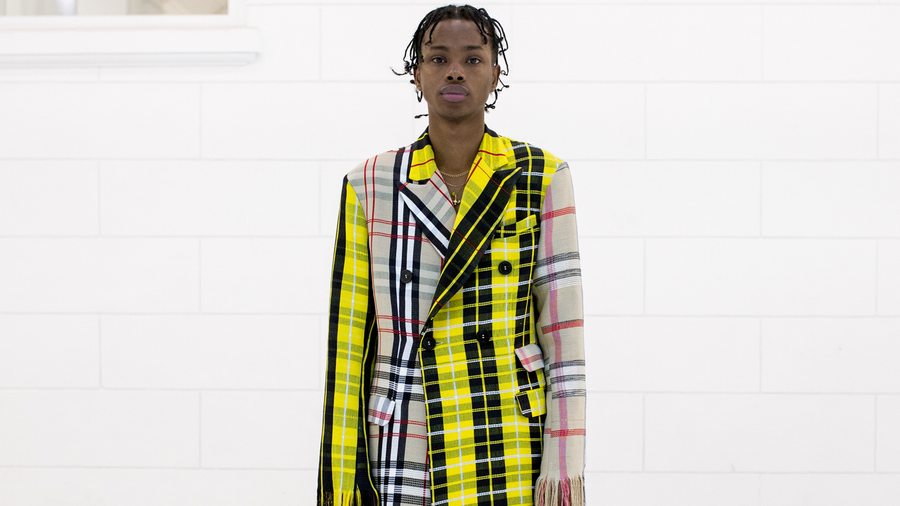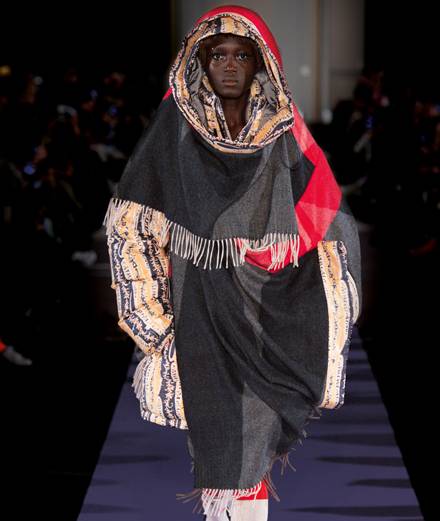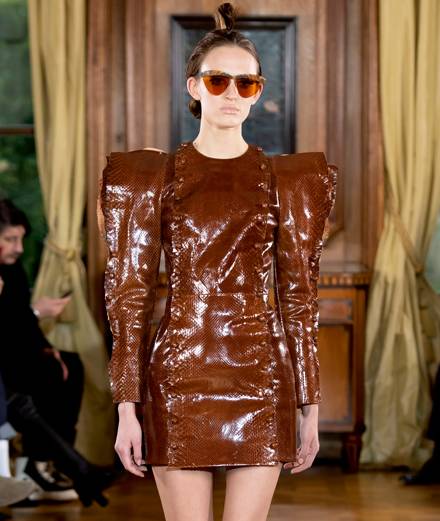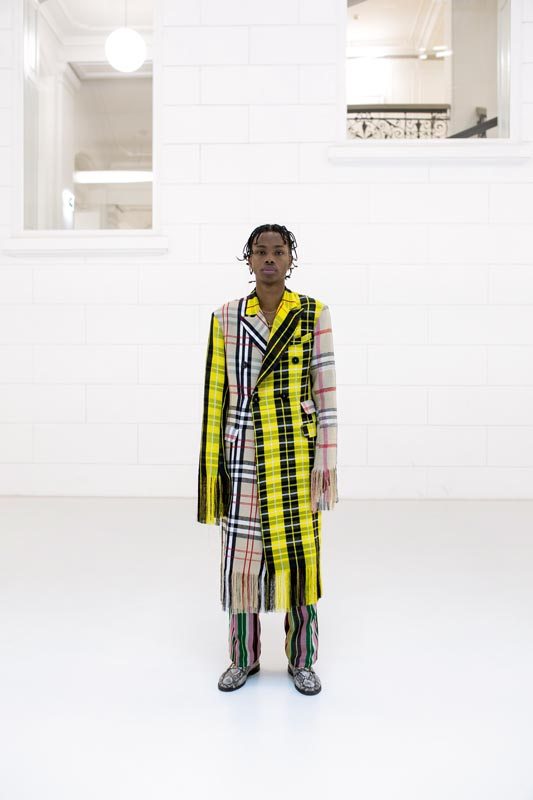

Confronted with an emergency or a crisis, human beings often react by examining their consciences, reconsidering their choices and values. Since the question of resources consumption naturally leads to that of their production, the current climate crisis throws a raw light on how the definition of value (economic, cultural, moral) was long the monopoly of imperialist Western powers. In the same way, the appearance in the fashion landscape of voices from countries that were long (and are often still) kept in a subordinate position brings into question that which we assume as obvious and take for granted.
For Nigerian designer Kenneth Izé, luxury isn’t necessarily what we suppose it is. “I think supporting artisanship, Nigerian or other, is in a sense one of the existing definitions of luxury,” he explains. “I believe that luxury thus has a foundational relation to certain ethical and sustainable principles and practices. So I think it’s our practice that could qualify us as an aspirational luxury brand, at least under such a definition of luxury. It is perhaps that the qualification has been too simply adjudicated to any company whose model was based merely on the conspicuous consumption of rare and expensive goods, diluting the meaning of it.”
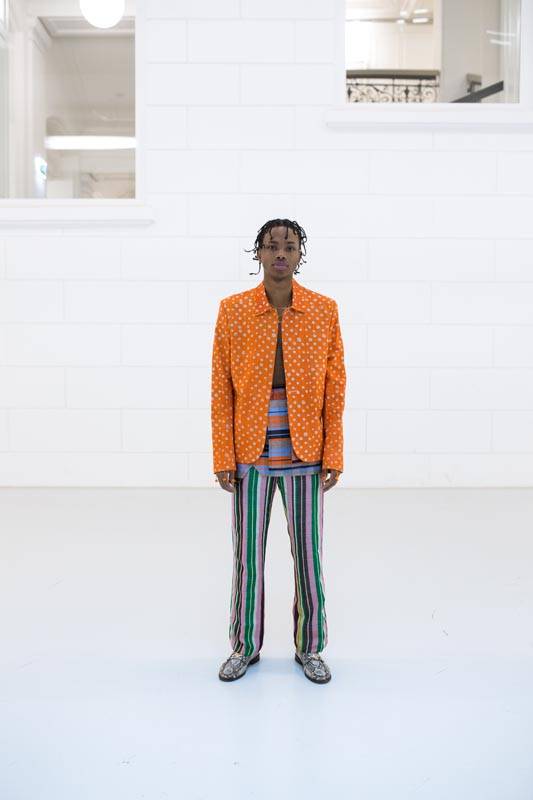
Kenneth Izé, Autumn/Winter 2019
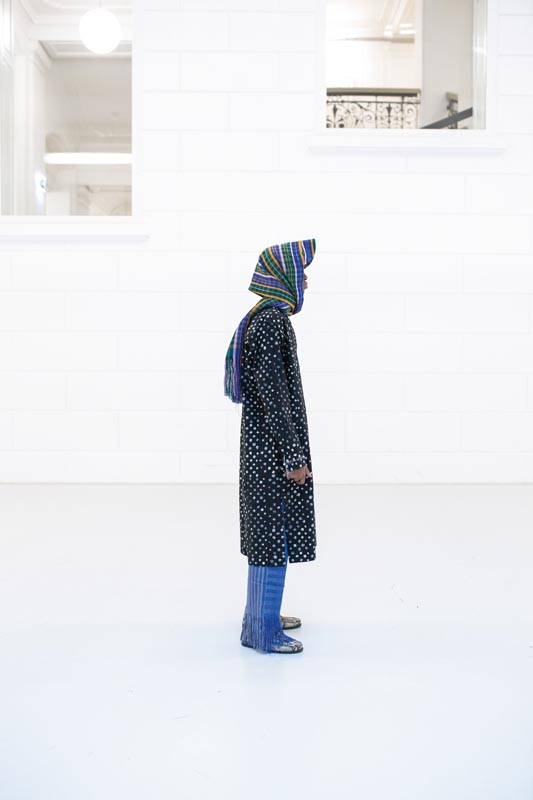
Kenneth Izé, Autumn/Winter 2019
Having grown up in both Nigeria and Austria, Izé learned his references and constructed his point of view through this dual heritage. He studied at the applied-arts university in Vienna, under the combined aegis of Hussein Chalayan and Bernard Willhelm: to his first aesthetic emotions, linked in particular to the gestures of his elegant mother who would drape herself in colourful scarves, Izé added a solid apprenticeship of couture techniques and fashion history. It was also during his studies that he met Axel Berner-Eyde, who is now his collection director. Before he had even completed university he was planning on founding his own label to showcase traditional Nigerian weaving techniques. “The initial idea behind the brand came during my graduation collection when I rediscovered the technique used to make the aso oke fabric. Each season we explore new ways of using the woven fabrics. This past season we introduced a pleated fabric, and we’ve also been exploring new yarns in the weaving process. We work directly with the weavers during this process to develop the colour and yarn combinations. It’s very collaborative in that we also rely on their aesthetic sensibility in arranging all the patterns. The outcome is never completely predictable, which makes for a very exciting process.”
From the studio he set up in Lagos, Nigeria’s biggest city, just three years ago, the 29-year-old has already made a name for himself on the international scene, attracting both Beyoncé and Naomi Campbell, who have publicly worn his clothes. Designated as one of the finalists in the 2019 LVMH prize, Izé hopes to win one of the awards so as to be able to develop further his ethical production which is realized in partnership with two weaving cooperatives, one in Lagos and the other in Ilorin. “We want to build out the community of weavers we work with and to create a production infrastructure in Lagos. It would be very important for us to be able both to produce the fabrics and have part of the clothing sampling and production in Nigeria. In the future, we hope to explore other artisanal techniques from the larger West African region. I think the increased exposure of Nigerian fashion and its inclusion in the broader industry will inevitably change the latter, and I’m very excited to be part of this.”
